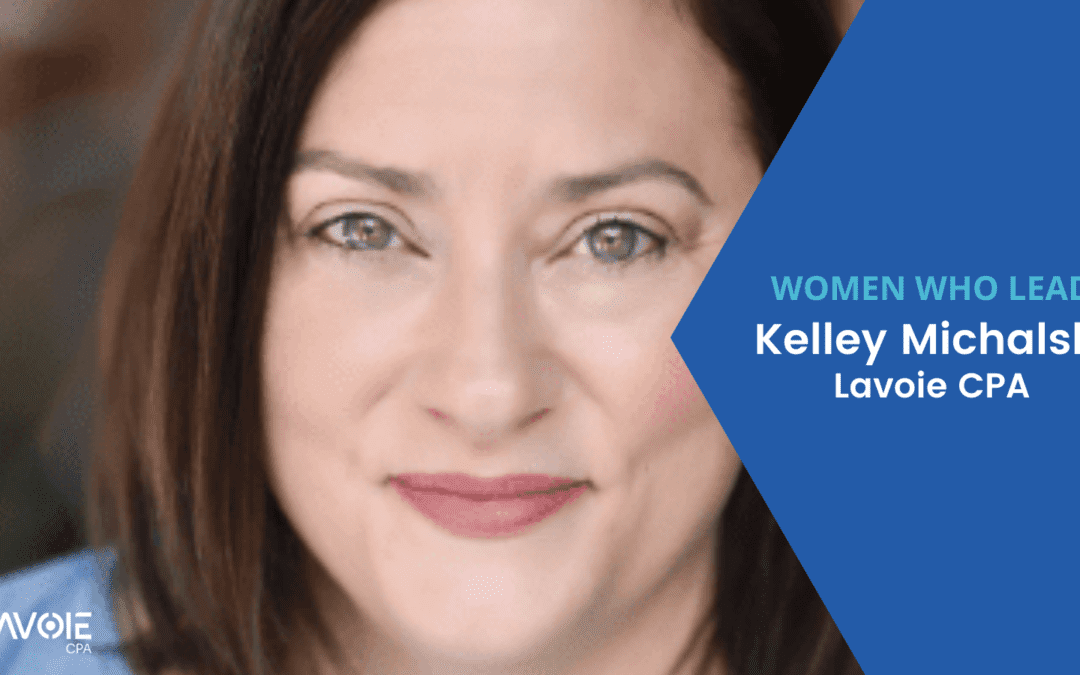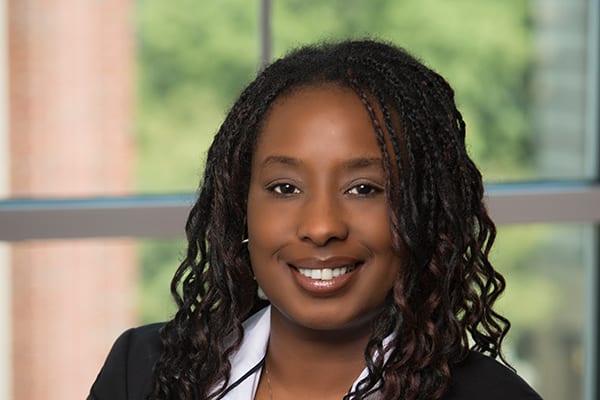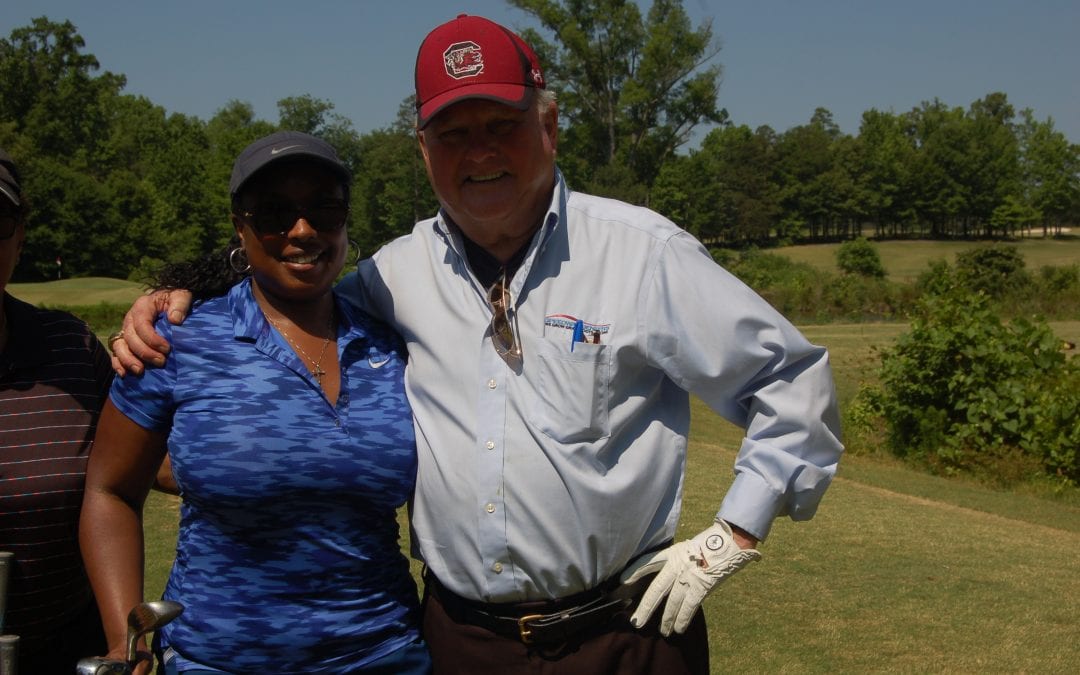
Women Who Lead: Kelley Michalski with Lavoie CPA
Each #WomenWhoLead feature will be showcased on a wall mural in South End Charlotte. If you know a woman leader who you want to feature on the wall, please click the button to nominate her.
When Kelley Michalski decided to leave her long-time corporate career to open barre3 Fort Mill, a boutique fitness studio, she expected to flex different muscles as a small business owner. But what she didn’t expect was a complete change in mindset.
Her mindset changed in waves.
The first change was accepting that she was creating a business from the ground up without the safety nets of a corporate setting. This led to the next realization: Instead of siloing and shelving her corporate experience, she needed to harness and utilize it as a small business owner.
The last change in mindset was the most significant. Michalski decided to join the financial management company Lavoie CPA while continuing to run Barre3 Fort Mill.
“At Lavoie, I enjoyed helping small businesses. Being a small business owner myself, I wanted to provide value to small businesses. I no longer wanted to be in the C suite of a large corporate organization,” says Michalski.
“It’s just interesting how your whole career changes and your mindset changes as well. I’ve always been a career-driven person. And then when you step back, you realize what’s truly important and valuable to you.”
We sat down with Michalski and asked her more about her experience.
You are the Vice President of Operations at Lavoie, but you’re also the owner of a fitness studio, correct?
Yes. The last position that I had when I was in corporate was CFO for a division of a Fortune 15 company, and I left about four years ago to exercise my entrepreneurial spirit. I opened up my own business, which is a boutique fitness studio. I went from corporate CFO to a fitness studio owner. So it was a complete 180.
But I always wanted to own my own business. I’ve always wanted to exercise that entrepreneurial spirit and drive something for community, a place where people have a sense of belonging and feel welcomed. That’s what I have worked to create within my fitness studio.
So then fast forward. As strange as it probably sounds, I really missed exercising the strategic accounting and finance side of my brain. Sharai, [ CEO of Lavoie CPA], and I have known each other for a few years and I started reaching out to her to say “Hey if you ever have an overflow need, let me know and I can jump in and help with some projects.” And that has now led to having a bigger role within the [Lavoie] organization. And this January, I became a partner of the organization and I am now responsible for our client operations group.
What was it like to start your small business?
The reality was that it was, I will say, a hard transition. I mean, you leave a corporate environment where you have structure, you have your paycheck — let’s just put it that way — you have a team, and you have all of these support mechanisms around you. And then you move into creating something on your own and you’re building it.
Some people can jump right into that. For me, it was a bit of a hard transition in the sense that I had to switch the way I was thinking. I had to remember that I’m building and starting and that [all of those support mechanisms] were not coming with [me].
After opening your studio, was getting your foot back into the corporate world a way to make things less scary and provide a little more stability?
Possibly. And I’m sure that’s one reason why. It was a comfort zone. It was “This is something that I feel confident about, I’m good at it. So let me bring that back in and kind of reduce the scary that comes with starting your own business.”
But I don’t want that to sound like I couldn’t handle starting my own business. I have enjoyed every bit of the journey and continue to look forward to growing my business.
If I had to do it over again, the advice I would give is you really have to change your mindset. Changing your mindset to “How can you pour that [large corporate] experience into your own business and your own structure to build [your business] from the ground up?”
Often, I thought that [my corporate experience] didn’t translate. [I] built balanced scorecards, [I] built lean strategic objectives for large organizations, and then I was like, “I’m not even using this skill set.”
Later, I had a tough conversation with myself asking “Why are you not translating [your skills]?” Even though it’s a small business you can still create a balanced scorecard, you can still create strategic objectives, you can bring that skill set with you.
Where does your entrepreneurial spirit come from?
In my first class [at business school], we had to create our own company and the financials for our company. I still to this day — and I’ve been out of college for many years — I still remember that project. And I think that set the seed a little bit for [me] having my own company.
I think the other part of it is I’ve been a very career-oriented individual. So I’ve been very passionate. I’ve been very hard working. That’s how I grew up.
My generation grew up with the sense that you work hard and you get a payoff for it. It was never like, “Well I’m just going to wait for a promotion to be given to me.” No. I’m going to work for it and earn it. And [starting my own business], I think it’s just almost a natural next step in this. I’m going to create something and I’m going to work for it.
Are there any mentors or role models that helped shape your work ethic?
There was one individual. He said to me once “You’ve got potential. I want to mentor you.” And the biggest thing that I learned from him is you have to seek out the mentoring.
I always say this when people ask me if I will mentor them — and they would literally wait for me to schedule the meeting. Or, let’s say we would schedule a meeting, they would think I would bring this amazing advice. No. You have to seek out the mentor. You need to think about, “Here are the areas I want to focus on, here’s where my opportunities are. I’m going to schedule the meeting with my mentor.”
And that kind of relates to something else that I learned throughout my career is, you cannot wait for the opportunities to come to you. You have to create your path of where you want to go.
There was a point in my career where I felt stuck and I was like “Everyone else is getting these opportunities. Why am I not getting these opportunities? Everyone else is getting picked to be part of the project, why am I getting to be part of the project?”
And one day it just flipped and I realized, “They may not know that I want to be part of that project.” I had to say “I want to grow here. The next time you have a project that comes up related to this, can I be part of it?”
Once that flipped, my career actually went boom.
How do you continue to practice asking for what you want?
That’s where you create a network to run ideas by people. I don’t have to ask anymore to be in the next position, I can just go for it. But it’s having the resources of a network to be able to say “What do you think about this? Is this a crazy idea?”
What do you think is next in your future?
Retire early. Ha. Ideally, I would love to have different business offerings, operate more businesses that I’ve created and be that strategic visionary component. That is what I have my eye on right now. As an entrepreneur, you don’t really focus on one thing. You focus on multiple avenues and I’m trying to decide what my next avenue is going to be while keeping my current avenue. Those are not going anywhere!
What is a new skill you’re learning right now?
I’ve learned how to do social media. As much as I personally do not like it and wish I didn’t have to be on [social media], if you own a business, there’s no choice. You have to be on social media. It is crucial to the success of your business. So that’s been a new skill that I’ve had to learn.
I’ve learned how to use different tools to create graphics and content. I could easily outsource this but because I have this creative side part of my brain, I enjoy doing it.






